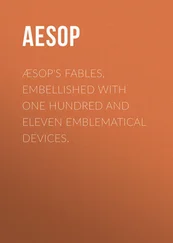Pamela Erens - Eleven Hours
Здесь есть возможность читать онлайн «Pamela Erens - Eleven Hours» весь текст электронной книги совершенно бесплатно (целиком полную версию без сокращений). В некоторых случаях можно слушать аудио, скачать через торрент в формате fb2 и присутствует краткое содержание. Год выпуска: 2016, Издательство: Tin House, Жанр: Современная проза, на английском языке. Описание произведения, (предисловие) а так же отзывы посетителей доступны на портале библиотеки ЛибКат.
- Название:Eleven Hours
- Автор:
- Издательство:Tin House
- Жанр:
- Год:2016
- ISBN:нет данных
- Рейтинг книги:4 / 5. Голосов: 1
-
Избранное:Добавить в избранное
- Отзывы:
-
Ваша оценка:
- 80
- 1
- 2
- 3
- 4
- 5
Eleven Hours: краткое содержание, описание и аннотация
Предлагаем к чтению аннотацию, описание, краткое содержание или предисловие (зависит от того, что написал сам автор книги «Eleven Hours»). Если вы не нашли необходимую информацию о книге — напишите в комментариях, мы постараемся отыскать её.
Eleven Hours
Eleven Hours — читать онлайн бесплатно полную книгу (весь текст) целиком
Ниже представлен текст книги, разбитый по страницам. Система сохранения места последней прочитанной страницы, позволяет с удобством читать онлайн бесплатно книгу «Eleven Hours», без необходимости каждый раз заново искать на чём Вы остановились. Поставьте закладку, и сможете в любой момент перейти на страницу, на которой закончили чтение.
Интервал:
Закладка:
“I need to know that you are all right at all times.”
Ah! Lore is ashamed! That you are all right. At all times . Lore has been uncooperative, ungrateful! Who else has made this offering to her— that you are all right at all times ? Who else has taken this on as their duty? (She was tired. She was not thinking.)
She lets Franckline guide her onto the bed.
Back home, Franckline reflects, they might have said that a lwa had for a short while taken hold of Lore. There were girls and young men who disappeared for days or even weeks, and would be found wandering miles from their villages, hair matted with sticks and mud, dried blood on their thighs, talking of mad experiences they had had with eagles, vultures, crows. There was nothing to do but bathe them and try to understand the message the lwa intended. Bernard chided her when she told such tales. There are no spirits except the Holy Spirit, he said. He and his family had been converted by Protestant missionaries when he was fifteen. Franckline too believed in Our One Savior, and wore the cross to show it. But even here, 1,500 miles away from Ayiti, it was hard not to think that the spirits from her childhood occasionally entered other bodies and made themselves known.
When she’d come out into the empty labor room and had not found Lore in the hallways or in any of the bathrooms, she’d grown alarmed, thinking of those crow-plucked and eagle-harassed men and women, and also of the woman, a year ago last fall, too much methamphetamine still in her veins, who went up to the eleventh floor and out onto the roof and jumped. The woman had been delivered just a couple of hours earlier of a baby boy, and her nurse (Carmen Ingres, it was, poor Carmen) had left her resting, so she thought, with her boyfriend. When Carmen next poked her head in to check on things, the boyfriend was gone, disappeared into the dusk, and the woman had flung herself onto Sixth Avenue.
Franckline draws shut the curtains. At this hour, people across the way can see inside. “And we’ve got to put the monitoring belt on immediately,” she announces, trying to smooth out the agitation in her voice. The girl nods, docilely, and Franckline feels as she affixes the stretchy straps that she is tying Lore to her, binding her to safety. She watches the printout for a moment, listens to the reassuring lub-lub . She is listening once again to the sound of her own child. Here is something else about a fetus at fifteen weeks: the bones are hardening and the ears are becoming intricately whorled. This child will look like any other child the world over, but it will be an American child and draw its first breath in American air. It will have the ways and sounds of this country in its life stream. Is this a good thing or a bad thing? It’s true that many American children are spoiled. She sees this in the hospital: kids careening in the hallways, screaming and fussing, refusing to mind their parents. Not most of them, but some in a way that a Haitian parent would never tolerate. Or at least would never have tolerated back there. In their neighborhood in Flatbush, the children have a freedom and an arrogance that were utterly unknown to her and her siblings growing up. The American-borns sass their parents, whine about chores, expect spending money. The parents employ the same discipline they were raised with, but to reduced effect. The children are breathing American air and drinking American water; it cannot be helped. Franckline imagines all the things she will do for this child: mash up plantains for its breakfast, place a block near it and then far. Sing it songs in her unfortunately tuneless voice. Tickle its belly. She and Bernard are both lean but she hopes for a fat child, with squat, sturdy legs and busy hands.
All is well according to the monitor. Franckline glances at the girl, who stares down at her belly from her reclining position in the bed as if in disbelief that her child is ever going to dispatch itself from its swollen home.
A man pokes his head in, gray hair pulled back in a ponytail from his narrow, lined face. “May I come in?”
“Yes, yes!” says Franckline, and welcomes the man with a clasp of her hand. It’s Jim, the orderly who works mainly in Gynecological Oncology but helps out in Maternity now and again, especially when a patient needs a ring or a bracelet removed. Franckline is glad it’s him; he’s always gentle with the women.
“It’s really coming down, Franckline,” Jim says. “Gonna be six inches by the time you head home. Maybe twelve inches by the morning.”
“Is that what they’re saying?”
“That’s what they say. I’ll take my grandkids sledding tomorrow if their mama lets me.”
“Jim’s going to take the ring off,” Franckline explains to Lore. “Show him your hand, Lore.”
Jim’s figure moves toward her out of the bright light of the room, which feels smaller to Lore now with the view of the street shut out. “Oooh,” he says. “Not too good. You’ve got to have this off, all right? I’m sorry. But when the nurses want something off, it has to come off.” Franckline lowers the birthing bed and Jim guides Lore to sit on its edge, pushing aside the monitor leads. He takes Lore’s palm in his and asks her to spread the fingers. She mustn’t protest anymore, she thinks, she must be good, she owes Franckline for absconding and making trouble. (But she saw things on her travels. A painting of the ocean. A legless man laughing with deep delight.) From a plastic toolbox the orderly removes a rectangle with a silvery protrusion that looks like an oversized key. He slides this key under Lore’s ring, explaining that it is to create a barrier between her skin and the cutting tool. He has to push to get it underneath. Lore winces. “I’m sorry, love,” Jim says. He takes out something larger, a sort of rod with a small wheel attached to the bottom. He gives her his routine warning, saying that the blade can’t cut her if she keeps still, there’s the guard between her and the ring.
“Ready?” he asks, flipping on the battery.
Jim once told Franckline that it always made him sad to cut off women’s rings; they always had some private meaning. Franckline concurs: the patients wouldn’t leave them on all this time, right up through the hospital intake, if there weren’t. Sometimes they are wedding rings, but more often, surprisingly, they are other types of rings entirely: flimsy gold bands with tiny gems that might have been handed down from some hardworking, immigrant grandmother, or cheap brass worn since the teen years. There are tears sometimes. The women hold up the damaged metal, peer disbelieving at what used to be a piece of jewelry, get anxious over what will happen to it next, ask for a bag, a box, a pouch, and fuss over where that bag or box or pouch will be placed. In some very particular pocket of their overnight bag, in their mother’s purse. Jim proceeds very slowly, letting the wheel grind for eight or ten seconds, then shutting off the device. Every time he stops, he touches the growing cut with the tip of his surgical-gloved finger to let it cool enough for him to go on. Franckline has noticed that it calms the patient, too, to watch the cut coming little by little. The few minutes make a difference; she starts to absorb the loss. Who knows what may happen once that occurs? One of the stories Jim likes to tell is of running into a woman at the supermarket whose wedding band he had removed shortly before she gave birth. He didn’t remember her, but she remembered him. “Once you did it I realized I no longer wanted to be married to the bastard. It’s just Alice and me now. I’m much happier.”
“About halfway there,” Jim tells Lore.
There’s no sound in the room except for the soft grating buzz of the cutter. Franckline strokes the band on her own finger. She will know to remove it long before it becomes a problem. That will likely not be until the third trimester. How beautiful that will be, knowing she’s passed through the most dangerous period, and that with every week the child is more sound, more viable. She will set the ring in the cushioned box it came in, next to the empty one that held the crucifix she now wears.
Читать дальшеИнтервал:
Закладка:
Похожие книги на «Eleven Hours»
Представляем Вашему вниманию похожие книги на «Eleven Hours» списком для выбора. Мы отобрали схожую по названию и смыслу литературу в надежде предоставить читателям больше вариантов отыскать новые, интересные, ещё непрочитанные произведения.
Обсуждение, отзывы о книге «Eleven Hours» и просто собственные мнения читателей. Оставьте ваши комментарии, напишите, что Вы думаете о произведении, его смысле или главных героях. Укажите что конкретно понравилось, а что нет, и почему Вы так считаете.












